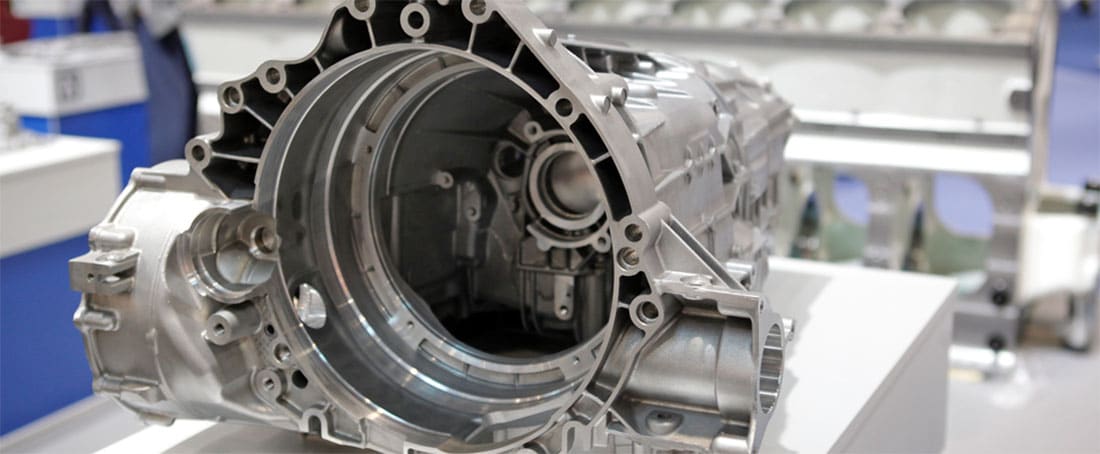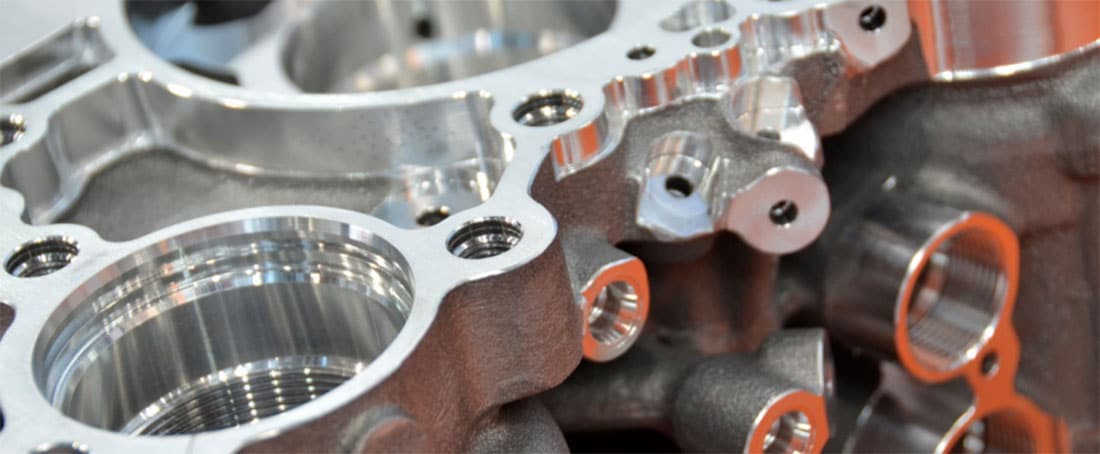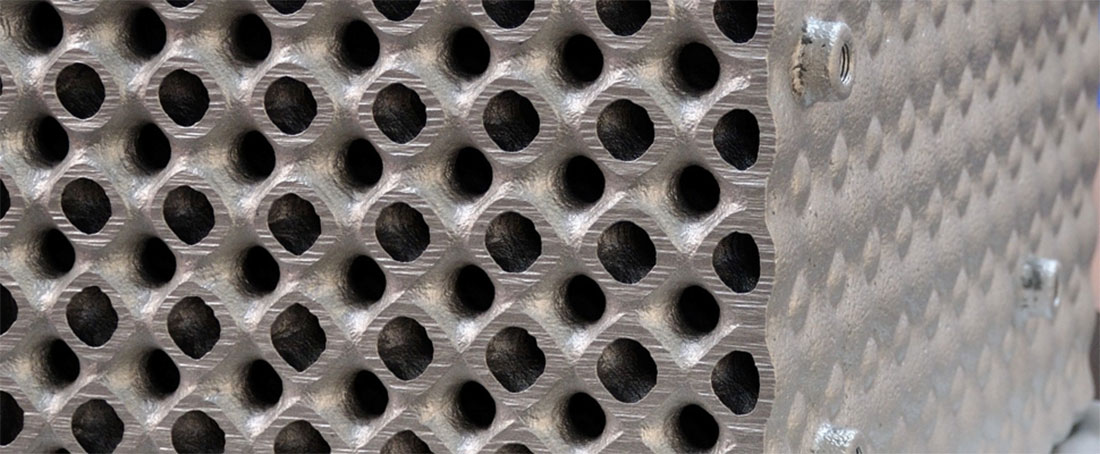There are two main casting processes, one in which the mould is destroyed as part of the process and one in which the mould may be re-used.
In sand casting the hollow mould is made of bonded sand using a wooden pattern, which is in the shape of the component to be made. Hollow sections can be introduced through the use of sand cores placed into the mould cavity. The pattern is removed and molten metal is poured into the cavity. Once the metal has solidified, the sand mould and any cores are removed.
The pattern may be re-used and the sand can generally be recycled.
In diecasting, the mould is made of metal and is called a tool or die. The molten metal is introduced into the die by gravity or under low pressure or high pressure. The die may be re-used many thousands of times to produced thousands of components.
Investment casting, in which a wax copy of the component is used to produce a ceramic mould, has been in existence for thousands of years, yet is still used to produce large numbers of high quality castings for aerospace and medical applications.
Other variations of casting processes include rapid prototyping, centrifugal casting, continuous casting and processes in which a semi-solid metal billet is squeezed into the mould or die, e.g. rheocasting and thixoforming.
The choice of process is determined by the number of components required, the metal alloy to be cast, the price per part and properties such as surface finish, strength etc.


